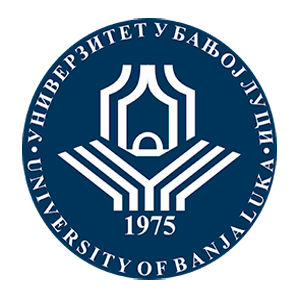 The University of Banja Luka (UBL), established in 1975, is the second largest university in Bosnia and Herzegovina, with more than 15,000 students. It consists of 17 faculties and 1 Institute (the full list can be found at http://unibl.org/en/members/faculties). UBL has 64 licensed study programs at the I cycle, 77 at the II and 15 at the III and is fully committed to the idea of a borderless area for research and knowledge exchange in Europe. In addition to having an excellent location and own facilities, UBL has other competitive capabilities, including about 1,140 research active staff for teaching and research excellence and 450 administrative staff members. The University of Banja Luka staff has been involved in 89 Tempus projects, several FP6 projects and FP7 projects, as well as in Erasmus Mundus projects. Also, UBL is currently involved in 5 Erasmus+ Capacity Building projects and around 50 active ICM projects with universities from different programme countries. The other international projects we have participated in were financed by: the European Commission, the Council of Europe, United Nations, the World Bank, governments of several states. The University of Banja Luka is bound by more than 200 bilateral agreements in cooperation with public and private universities from all over the world. You can find more information about us on our webpage – https://unibl.org/en
The University of Banja Luka (UBL), established in 1975, is the second largest university in Bosnia and Herzegovina, with more than 15,000 students. It consists of 17 faculties and 1 Institute (the full list can be found at http://unibl.org/en/members/faculties). UBL has 64 licensed study programs at the I cycle, 77 at the II and 15 at the III and is fully committed to the idea of a borderless area for research and knowledge exchange in Europe. In addition to having an excellent location and own facilities, UBL has other competitive capabilities, including about 1,140 research active staff for teaching and research excellence and 450 administrative staff members. The University of Banja Luka staff has been involved in 89 Tempus projects, several FP6 projects and FP7 projects, as well as in Erasmus Mundus projects. Also, UBL is currently involved in 5 Erasmus+ Capacity Building projects and around 50 active ICM projects with universities from different programme countries. The other international projects we have participated in were financed by: the European Commission, the Council of Europe, United Nations, the World Bank, governments of several states. The University of Banja Luka is bound by more than 200 bilateral agreements in cooperation with public and private universities from all over the world. You can find more information about us on our webpage – https://unibl.org/en
University of Banja Luka is a member of the European University Association and is a signatory of the Magna Charta Universitatum. The University is a member of the International University Network for Academic and Research Cooperation, under the patronage of the La Sapienza University Science Park, Rome, Italy, the General Assembly of Interuniversity Centre for Research and Cooperation with Eastern and South-Eastern Europe, with headquarters at the University of Bari, Italy, UniAdrion universities network with headquarters in Ancona, Italy, EMUNI foundation with headquarters in Slovenia and the Agency for Francophone Universities .
UBL has already worked to a significant extent on the development of blended learning models, independently and through projects. We believe that the improvement of the learning model by applying the MCPB module will build on and contribute to strengthening the results of the project 610225-EPP-1-2019-1-EN-EPPKA2-CBHE-JP, Business driven problem-based learning for academic excellence in geoinformatics – GEOBIZ, Erasmus+ KA2 Capacity Building, in which UBL is a participant.
